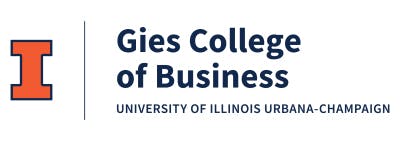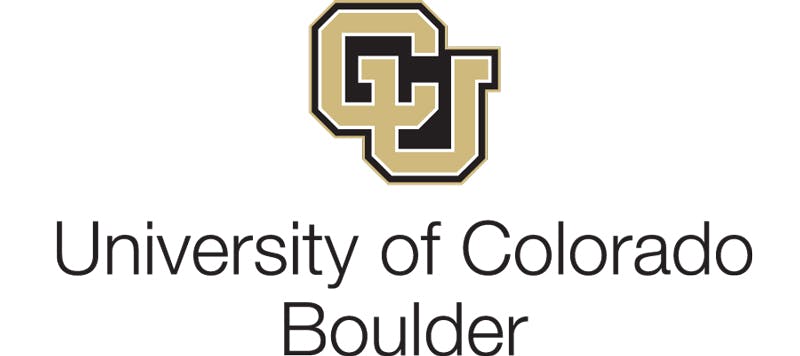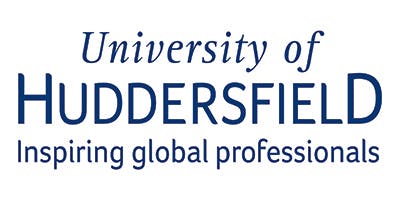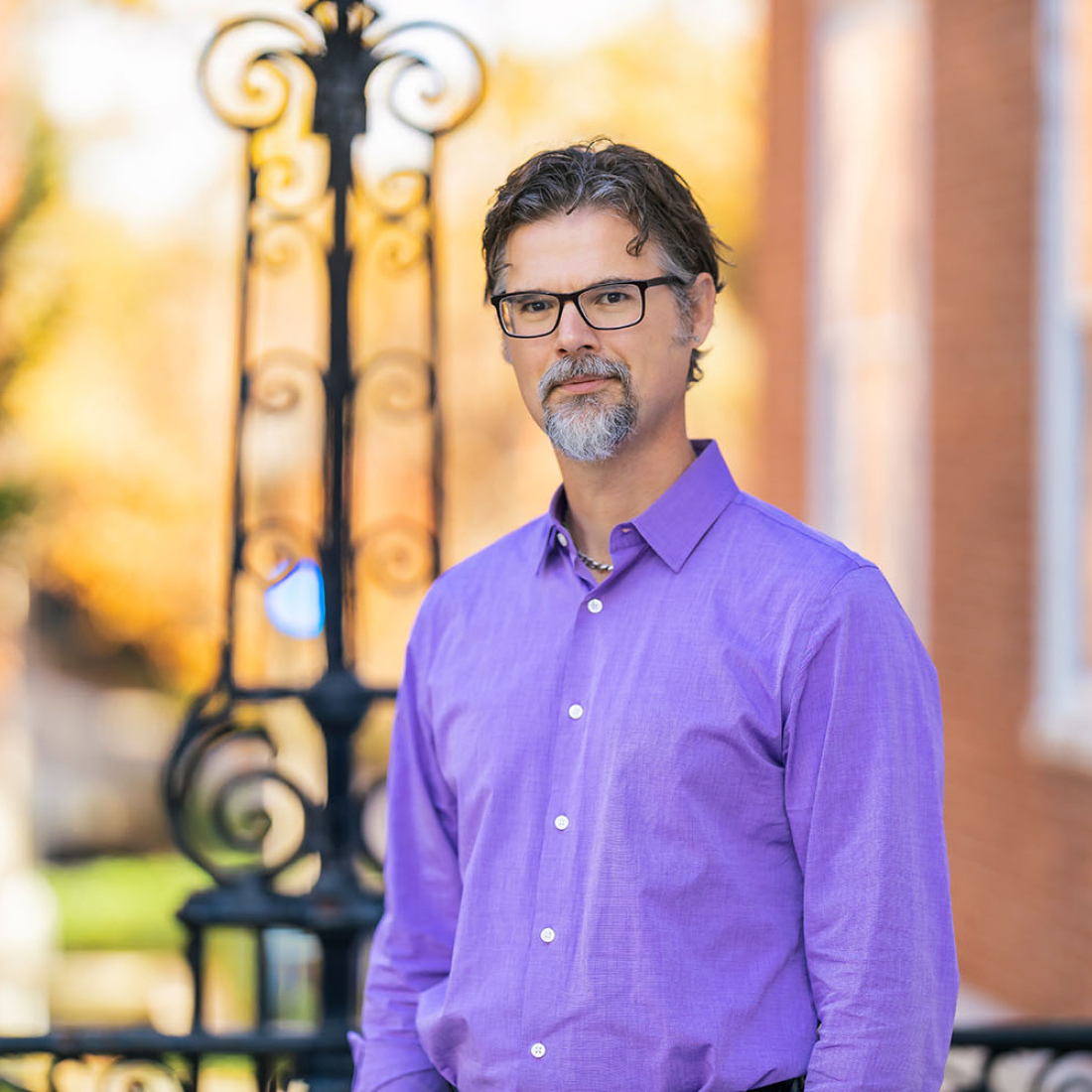- For Individuals
- For Businesses
- For Universities
- For Governments
- Online Degrees
- Join for Free

- Degrees >
- Master's Degrees

Master’s Degrees
Get started today.
I am interested in learning more about degrees on Coursera.
Find the right degree for you

University of Michigan
Master of Applied Data Science

Illinois Tech
Master of Data Science

University of Illinois Urbana-Champaign
Master of Business Administration (iMBA)
Master of business administration, master of science in management (imsm).

University of Colorado Boulder
Master of Science in Data Science

University of Huddersfield
MSc Management

Louisiana State University
Master of Science in Analytics
Browse by category.
Business and MBA Degrees
Computer Science Degrees
Data Science Degrees
Public Health Degrees
Top European Degrees
Top Indian Degrees
Data Analytics Degrees
Maestrías en línea de Latinoamérica
Register for degree program webinars
Join an upcoming webinar to gain valuable insights from university admissions counselors, instructors, and faculty.
7:00 PM MSK

Master of Science in Computer Science
1:00 AM MSK

Maestría en Dirección de Empresas (MBA)
10:00 PM MSK

Master of Engineering in Engineering Management
Affordable tuition with flexible payment options
Pursue your master's degree with affordable tuition, flexible payment options that let you pay as you go, and financial aid opportunities, including scholarships.
University of London
Master of Science in Cyber Security
Designed for working adults.
Enroll in flexible, 100% online master's degree programs. Set your own schedule to balance your work and personal commitments and complete coursework at your own pace.
Quality learning from world-class universities
Unlock your potential and pave the way to a successful career by earning a master's degree from an accredited university. Learn from expert faculty passionate about helping you achieve your goals.
Start making progress toward a degree today
Discover flexible degree pathways that enable you to build new skills and gain career certificates while making progress and earning credit toward eligible degree programs.
Each university determines the number of pre-approved credits that may count towards the degree requirements according to institutional policies.
Gain admission without an application
Complete university-approved content to qualify for performance-based admission to select master's degree programs and earn credit toward your degree. No application or prior work experience is required to start these degree pathways.
Each university determines the grades required to qualify for performance-based admission. Review the admissions process for each degree program for more information.
Master of Information Technology

Ball State University
What are students saying?
Learn from expert faculty.
Anne Dougherty
Senior Instructor and Teaching Professor in Applied Mathematics
University of Illinois
Denise Lewin Loyd
Associate Professor of Business Administration and Vernon Zimmerman Faculty Fellow
University of Pennsylvania
Master of Computer and Information Technology
Boon Thau Loo
RCA Professor, Computer and Information Science Department
O.P. Jindal Global University
M.A. in International Relations, Security, and Strategy
Mohan Kumar, PhD
Professor and Dean of International Affairs and Global Initiatives (IAGI)
Imperial College London
Global Master of Public Health
Professor and Co-Director
MSc in Innovation and Entrepreneurship
Laurence Lehmann-Ortega
Affiliate Professor of Management
Find helpful articles related to master's degrees
Your guide to master's programs.
Learn more about the requirements, cost, and coursework requirements for different postgraduate degrees, as well as the most popular master’s degree programs to consider..
Last updated on November 29, 2023
How to Get a Master's Degree
Getting a bachelor's degree is the first step in how to get a master’s degree. Once you’ve decided that it’s the right choice for you, check out this guide, which covers everything from getting into graduate school to earning that advanced degree.
Master’s Degree Salary Guide (2024)
Learn about the average salaries associate with master's degrees, plus get a list of the highest paying master's degrees.
Last updated on January 17, 2024
Is a Master's Degree Worth It?
Learn more about evaluating whether a master's degree is the right decision for your future.
Last updated on August 14, 2024
Frequently asked questions
What does an online master’s degree cost.
The cost of an online master's degree will depend on the program you’re interested in attending. You’ll find a range of flexible options on Coursera, where many master’s programs offer pay-as-you-go tuition. That means you only pay for the courses you take, so if you need to take a term off, you won't be charged during that time.
There are many ways to pay for graduate school . You may be eligible for scholarships, financial aid, or employer tuition benefits to help cover the cost of your degree. To learn more about these options and tuition costs, please visit the degree page for your program of interest. If you need additional funding, you can explore the resources on our Financial Resources Hub .
How long does an online master’s program take?
Flexibility is a priority on Coursera given the competing responsibilities many learners may have as they embark on their graduate education. Some master's programs, such as the University of Illinois Urbana-Champaign’s Master of Science in Management , can be completed in as little as one year. Other master’s degree programs may take two years or more to complete .
You can find more information about the program duration by visiting the degree page for the program you’re interested in.
How is an online master’s degree different from an on-campus degree?
Master’s degrees on Coursera come from accredited universities, which ensures the standard and quality of your education. The education you receive in an online degree program may match that of an in-person degree program. The difference is in how you learn—aka the learning modality.
Coursera’s degree partners may offer an array of modalities, including live video lectures that encourage collaborative discussion and asynchronous courses that allow for independent exploration. Throughout your learning journey, you'll have access to a dedicated support team, course facilitators, and a network of peers to help you achieve your academic goals.
Do you need a bachelor’s degree to get a master’s degree? And does it have to be in the same field?
Yes, typically a bachelor’s degree is required to pursue a master’s degree , though it doesn’t have to be the same subject or field.
However, some master’s programs on Coursera do not require a bachelor’s degree for admission. These include the University of Colorado Boulder’s Master of Science in Electrical Engineering , Master of Engineering in Engineering Management , and Master of Science in Data Science , which offer performance-based admission.
How do I choose the best online master’s program for me?
There are a range of different reasons to pursue a master’s degree. A master’s degree can be an opportunity to advance your knowledge of a subject or gain the necessary knowledge and skills to pivot to a new career.
It may be helpful to think about your interests, career goals, and resources while exploring potential master’s degree programs. Take time to review the curriculum you’ll study, the way you’ll learn (the modality), the program’s cost, and how flexible it is. These factors can help you determine which online master’s program is best for you.
How do I apply for an online master’s degree?
Each master’s program on Coursera sets different application requirements and may expect materials like a bachelor’s degree , GRE scores, a graduate school resume , or a letter of intent . It’s a good idea to visit the degree page for the program you’re interested in to get more information. Click “Apply Now” if you’re ready to begin the process.
On Coursera, certain institutions do not require an application, like the University of Colorado Boulder's Master's of Science in Data Science . You can qualify for performance-based admission by passing three courses in either its Statistics or Computer Science pathway.
How do employers view graduate degrees earned online?
A master’s degree can be a valuable education unto itself—and a respected credential to feature on your resume. An online degree only describes how you earned your master’s degree, and often that qualifier is not part of the official degree you receive upon graduation.
Earning your master’s degree and including that detail on your resume tells employers about the advanced knowledge and skills you’ve developed. It can also be a signal about your dedication to building on your education.
Is earning a master’s degree online worth it?
Yes, a master’s degree can be worth it—depending on your goals. A master’s degree can lead to higher salaries, more senior-level opportunities, advanced knowledge and skill sets, and exciting networking opportunities, among other benefits. Learn more about whether going back to school is the best option for you and whether a master’s degree is worth it .
More Questions
Graduate research
Whatever your passion, the University of Melbourne offers stimulating graduate research degrees, including PhDs, and the support you need to pursue them.
Study at a globally leading university
- #1 in Australia
- #13 in the world
- #8 in graduate employability
- 2500+ supervisors
Make a difference through graduate research
Belong to a globally connected research community. Collaborate with supervisors, experts and peers who share your passion for discovery and impact. As Australia’s leading research-intensive university, we'll support you to make a difference.
Graduate research at Melbourne
Thrive in a diverse, inclusive and supportive research community.
Access our world-class facilities and experts
Push the boundaries of your knowledge with support from our experts and premium facilities.
Graduate research scholarships
Access to financial support
Our graduate research scholarships will support you to focus on research you're passionate about. Our 700+ scholarships include fee remission, living allowance and travel, research and activity-based bursaries. You are automatically considered for scholarships when you apply.
Types of graduate research degrees
We offer several graduate research degrees that allow you to explore your area of interest in depth.
To gain a PhD, you will complete a four-year full-time or equivalent part-time research project. You'll develop expert research and analytical skills. And you'll communicate the outcomes in a thesis and through an oral presentation.
To complete the degree, you must make an original and significant contribution to knowledge. A PhD is an internationally recognised qualification.
Find a PhD degree
The Master of Philosophy is a two-year degree in which you'll complete a substantial research project. You'll develop advanced research skills, techniques and specialist knowledge in your discipline. You'll produce a thesis.
Completion of a Master of Philosophy provides one pathway to the Doctor of Philosophy.
Find a Master of Philosophy degree
Masters by Research is a two-year degree, at least two-thirds of which is devoted to research. You'll gain advanced disciplinary and research expertise and produce a major research thesis.
Find a Masters by Research degree
Find a supervisor
We're consistently ranked as a leading university around the world for research. Be guided by our experts.

Find a project
Explore the research projects listed by our experts and express interest in the opportunities that suit you.
Before you apply
Each degree has different minimum entry requirements and English language requirements. Requirements may also vary for domestic and international applicants. Before you apply, check the entry requirements for your degree and discipline.
Looking for more information?
Indigenous researchers.
Join a close-knit cohort who share your challenges and motivations.
Interdisciplinary research
Collaborate with experts in other disciplines across the University.
Research internships
Expand your professional networks and strengthen your research and transferable skills.
International joint PhD degrees
Access expertise, resources and training together with our international partner institutions.
Research support
Our services will support you throughout your research career.
Protecting your IP
Have an idea? We’ll help you protect your intellectual property.
Hear from our graduate researchers
Find out what motivated our current students to study with us, and how researching has changed their lives and careers.
The sense of community is something that I really appreciate. You get to see people who might understand your struggles being somebody coming from an international background. Read more Rita Adjei, PhD in Education
They really let me explore all ideas. If I had an idea that wasn’t going to be good, they would guide me in the right direction. Read more Dr Leanne Teoh, PhD in Medicine, Dentistry and Health Sciences
Keep reading
Life as a researcher.
What is a graduate research degree like? Where can it lead you? Explore success stories from our graduate researchers who have taken paths from academia to running their own business.
Research ethics and integrity
We're committed to responsible and ethical conduct in all our research endeavours. We support that commitment with a robust system of review and comprehensive training programs.
Explore more research
Pursuit is the University's award-winning research news website. It's updated regularly with a restless focus on what occupies our lives today.
Doctor of Philosophy in Education

Additional Information
- Download the Doctoral Viewbook
- Admissions & Aid
The Harvard Ph.D. in Education trains cutting-edge researchers who work across disciplines to generate knowledge and translate discoveries into transformative policy and practice.
Offered jointly by the Harvard Graduate School of Education and the Harvard Kenneth C. Griffin Graduate School of Arts and Sciences, the Ph.D. in Education provides you with full access to the extraordinary resources of Harvard University and prepares you to assume meaningful roles as university faculty, researchers, senior-level education leaders, and policymakers.
As a Ph.D. candidate, you will collaborate with scholars across all Harvard graduate schools on original interdisciplinary research. In the process, you will help forge new fields of inquiry that will impact the way we teach and learn. The program’s required coursework will develop your knowledge of education and your expertise in a range of quantitative and qualitative methods needed to conduct high-quality research. Guided by the goal of making a transformative impact on education research, policy, and practice, you will focus on independent research in various domains, including human development, learning and teaching, policy analysis and evaluation, institutions and society, and instructional practice.
Curriculum Information
The Ph.D. in Education requires five years of full-time study to complete. You will choose your individual coursework and design your original research in close consultation with your HGSE faculty adviser and dissertation committee. The requirements listed below include the three Ph.D. concentrations: Culture, Institutions, and Society; Education Policy and Program Evaluation; and Human Development, Learning and Teaching .
We invite you to review an example course list, which is provided in two formats — one as the full list by course number and one by broad course category . These lists are subject to modification.
Ph.D. Concentrations and Examples
Summary of Ph.D. Program
Doctoral Colloquia In year one and two you are required to attend. The colloquia convenes weekly and features presentations of work-in-progress and completed work by Harvard faculty, faculty and researchers from outside Harvard, and Harvard doctoral students. Ph.D. students present once in the colloquia over the course of their career.
Research Apprenticeship The Research Apprenticeship is designed to provide ongoing training and mentoring to develop your research skills throughout the entire program.
Teaching Fellowships The Teaching Fellowship is an opportunity to enhance students' teaching skills, promote learning consolidation, and provide opportunities to collaborate with faculty on pedagogical development.
Comprehensive Exams The Written Exam (year 2, spring) tests you on both general and concentration-specific knowledge. The Oral Exam (year 3, fall/winter) tests your command of your chosen field of study and your ability to design, develop, and implement an original research project.
Dissertation Based on your original research, the dissertation process consists of three parts: the Dissertation Proposal, the writing, and an oral defense before the members of your dissertation committee.
Culture, Institutions, and Society (CIS) Concentration
In CIS, you will examine the broader cultural, institutional, organizational, and social contexts relevant to education across the lifespan. What is the value and purpose of education? How do cultural, institutional, and social factors shape educational processes and outcomes? How effective are social movements and community action in education reform? How do we measure stratification and institutional inequality? In CIS, your work will be informed by theories and methods from sociology, history, political science, organizational behavior and management, philosophy, and anthropology. You can examine contexts as diverse as classrooms, families, neighborhoods, schools, colleges and universities, religious institutions, nonprofits, government agencies, and more.
Education Policy and Program Evaluation (EPPE) Concentration
In EPPE, you will research the design, implementation, and evaluation of education policy affecting early childhood, K–12, and postsecondary education in the U.S. and internationally. You will evaluate and assess individual programs and policies related to critical issues like access to education, teacher effectiveness, school finance, testing and accountability systems, school choice, financial aid, college enrollment and persistence, and more. Your work will be informed by theories and methods from economics, political science, public policy, and sociology, history, philosophy, and statistics. This concentration shares some themes with CIS, but your work with EPPE will focus on public policy and large-scale reforms.
Human Development, Learning and Teaching (HDLT) Concentration
In HDLT, you will work to advance the role of scientific research in education policy, reform, and practice. New discoveries in the science of learning and development — the integration of biological, cognitive, and social processes; the relationships between technology and learning; or the factors that influence individual variations in learning — are transforming the practice of teaching and learning in both formal and informal settings. Whether studying behavioral, cognitive, or social-emotional development in children or the design of learning technologies to maximize understanding, you will gain a strong background in human development, the science of learning, and sociocultural factors that explain variation in learning and developmental pathways. Your research will be informed by theories and methods from psychology, cognitive science, sociology and linguistics, philosophy, the biological sciences and mathematics, and organizational behavior.
Program Faculty
The most remarkable thing about the Ph.D. in Education is open access to faculty from all Harvard graduate and professional schools, including the Harvard Graduate School of Education, the Faculty of Arts and Sciences, the Harvard Kennedy School, the Harvard Law School, Harvard Medical School, and the Harvard School of Public Health. Learn about the full Ph.D. Faculty.

Jarvis R. Givens
Jarvis Givens studies the history of American education, African American history, and the relationship between race and power in schools.

Paul L. Harris
Paul Harris is interested in the early development of cognition, emotion, and imagination in children.

Meira Levinson
Meira Levinson is a normative political philosopher who works at the intersection of civic education, youth empowerment, racial justice, and educational ethics.

Luke W. Miratrix
Luke Miratrix is a statistician who explores how to best use modern statistical methods in applied social science contexts.

Eric Taylor
Eric Taylor studies the economics of education, with a particular interest in employer-employee interactions between schools and teachers hiring and firing decisions, job design, training, and performance evaluation.

Paola Uccelli
Paola Ucelli studies socio-cultural and individual differences in the language development of multilingual and monolingual students.

View Ph.D. Faculty
Dissertations.
The following is a complete listing of successful Ph.D. in Education dissertations to-date. Dissertations from November 2014 onward are publicly available in the Digital Access to Scholarship at Harvard (DASH) , the online repository for Harvard scholarship.
- 2022 Graduate Dissertations (265 KB pdf)
- 2021 Graduate Dissertations (177 KB pdf)
- 2020 Graduate Dissertations (121 KB pdf)
- 2019 Graduate Dissertations (68.3 KB pdf)
Student Directory
An opt-in listing of current Ph.D. students with information about their interests, research, personal web pages, and contact information:
Doctor of Philosophy in Education Student Directory
Introduce Yourself
Tell us about yourself so that we can tailor our communication to best fit your interests and provide you with relevant information about our programs, events, and other opportunities to connect with us.
Program Highlights
Explore examples of the Doctor of Philosophy in Education experience and the impact its community is making on the field:

Elevating Teacher Voices in Professional Development Planning and Design
A new study co-authored by Megan Satterthwaite-Freiman highlights the need for more effective and personalized training on how to lead conversations about sensitive topics in the classroom

Honoring the Cultural Backgrounds of All Students
A new research paper provides a model for social and emotional learning in schools that is culturally sustaining

- Recommendations
- Notifications
- My Favorites
Favorites, recommendations, and notifications are only available for UCLA Graduate Students at this time.
Access features exclusively for UCLA students and staff.
As a student, you can:
- Add funding awards to your favorites list
- Get notified of upcoming deadlines and events
- Receive personalized recommendations for funding awards
We're Sorry
You've signed in with a UCLA undergraduate student account.
UCLA Graduate Programs

Whether you’re a new grad student, a postdoc, a visiting graduate researcher, or a prospective applicant looking to see what research we’re doing on campus, we’ve compiled some resources on this page to get you started.
As a preeminent public research university, UCLA offers the opportunity to lead research in state-of-the-art facilities while collaborating with world-renowned faculty. Scholars will learn to further shape and define their particular projects, expand their mastery in their chosen field, work in partnership with their peers and mentors and share their knowledge in the classroom and lab. This collective effort is the spark that ignites solutions to the most pressing global problems of today and tomorrow. Susan L. Ettner Dean, UCLA Division of Graduate Education Professor, Department of Medicine Professor, Department of Health Policy and Management
Visiting Graduate Researchers
Visiting Graduate Researchers are domestic or international degree-seeking graduate students at their home institution who are invited to conduct short-term doctoral research or participate in a mentored or independent research project or master’s research collaboration with a faculty member at UCLA. The initial Visiting Graduate Researcher appointment can range from 3 weeks to 12 months; the maximum stay is 24 months.
Postdoctoral Scholars
A Postdoctoral Scholar (Postdoc) is an individual who holds a doctoral degree, is engaged in advanced training and education, and conducts research under the guidance of a faculty member at UCLA. A postdoctoral scholar position prepares you for a career in academia, industry, government or the non-profit sector. Each year, UCLA hosts approximately 1,200 postdocs worldwide who play a critical role in furthering the University’s educational and research mission.
Research Assistantships
Graduate Student Researcher positions provide experience working on faculty-supervised research projects. Applicants should inquire within their department.
Internships
The UCLA Career Center’s Handshake is a good place to start looking for internships, as is the UCLA International Education Office if you’re looking for an experience abroad. Other places are your home program/department and other programs/departments on campus.
Summer Programs
Many UCLA summer programs are designed to give undergraduates research experience before applying to graduate school. Head to our Admissions section to learn more about Undergraduate Summer Programs . For graduate students, search our Graduate Funding Search Engine to see current research opportunities available through the summer.
- UCLA-Peking Joint Research Institute Summer Exchange

Compare Research-Oriented Graduate Degree Programs
The Master’s program usually lays the groundwork for the pursuit of a Ph.D. These programs focus on specialized research, rigorous coursework, and superb faculty mentorship. A graduate degree from Berkeley EECS ensures that you have cultivated the necessary skills to succeed in a career in industry or teaching.
Master of Science (M.S.) Only
Semester Admitted: Fall (August)
Application deadline: mid-December
Full-time Commitment: ~2 years
Location: On-Campus
Focus: Leads to a career in industrial R&D or Ph.D.
The Master of Science (MS) program is a very small research program for exceptional applicants with research experience . The MS leads to a Ph.D. or a career in industrial R&D.
Doctor of Philosophy (Ph.D.) Only
Full-time Commitment: 5-6 years (starting with a Bachelor’s), 3-5 years (starting with a Master’s)
Focus: Research + teaching experience
A Ph.D. in EECS combines coursework and original research with exceptional faculty mentoring to prepare for a career in academia or industry.
Both (M.S./Ph.D.)
Full-time Commitment: 5-6 years
Focus: Research preparation for the Ph.D.
A full program for those who know they would like to pursue a Ph.D at Berkeley.

IMAGES
VIDEO
COMMENTS
Earn a Master's degree from a top-ranked university at an affordable price. Study on your own schedule with 100% online degree programs and receive the same university graduate degree as students who attend class on campus.
We offer several graduate research degrees that allow you to explore your area of interest in depth. To gain a PhD, you will complete a four-year full-time or equivalent part-time research project. You'll develop expert research and analytical skills.
Graduate Research Degree Programs. Go beyond the classroom to make a meaningful impact. The College of Agriculture and Life Sciences (CALS) offers research-centered (M.S./Ph.D.) advanced degree programs in more than 30 fields of study. Cornell is ranked first among the nation’s academic institutions in National Science Foundation research funding.
The Harvard Ph.D. in Education trains cutting-edge researchers who work across disciplines to generate knowledge and translate discoveries into transformative policy and practice. Offered jointly by the Harvard Graduate School of Education and the Harvard Kenneth C. Griffin Graduate School of Arts and Sciences, the Ph.D. in Education provides ...
Whether you’re a new grad student, a postdoc, a visiting graduate researcher, or a prospective applicant looking to see what research we’re doing on campus, we’ve compiled some resources on this page to get you started.
These programs focus on specialized research, rigorous coursework, and superb faculty mentorship. A graduate degree from Berkeley EECS ensures that you have cultivated the necessary skills to succeed in a career in industry or teaching.